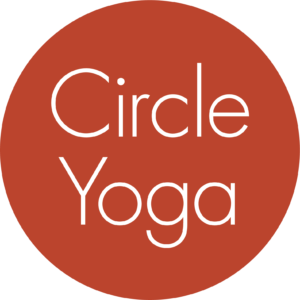August 2014
A few weeks ago, I invited a friend to visit me in DC and I planned a relaxing weekend for the two of us in the Virginia mountainside. A week before the visit, another friend let me know that she happened to be coming to DC for a meeting that same weekend. I realized that my well thought out plans would have to change, and I started fretting and ruminating about it. Something similar happened last week too, when a friend arrived more than an hour late for dinner. I was irritated and not able to fully enjoy the dinner. In both cases, failed expectations got in the way of me enjoying potentially wonderful moments with friends and family.
I am a planner by nature. I like to know what is going to happen and when, and I especially like it when my plans materialize the way I envisioned them. But when they don’t, I suffer a lot. Because I have an expectation that things will go as I planned them, when they don’t I get angry and frustrated. It’s never pleasant for me or those around me when my plans dissolve. Buddhist teacher Phillip Moffitt calls this the “tyranny of expectations.”
“IN CONTRAST TO EXPECTATIONS, POSSIBILITIES ARE BASED IN THE PRESENT MOMENT, WHERE YOU’RE ALIVE TO THE MYSTERY OF LIFE. YOU LIVE AS FULLY AS YOU CAN IN THE PRESENT MOMENT BASED ON YOUR VALUES, WHICH REFLECT YOUR PREFERENCES FOR THE FUTURE, BUT YOU DO NOT ASSUME THAT THE FUTURE WILL COME TO PASS, BECAUSE YOU REALIZE THAT THE FUTURE IS UNKNOWN. BEING OPEN TO POSSIBILITIES ACKNOWLEDGES THAT WHAT YOU MAY THINK YOU WANT CHANGES WITH TIME, OR THAT THERE IS ANOTHER FUTURE THAT WILL BRING YOU EQUAL OR MORE HAPPINESS, OR THAT THE FUTURE MAY TURN BLEAK, OR THAT YOU MAY DIE BEFORE ANY FUTURE CAN UNFOLD. REAL JOY, THEN, IS THAT WHICH IS AVAILABLE TO YOU RIGHT NOW. LIVING A LIFE THAT IS OPEN TO POSSIBILITIES IS MORE LIKE A REQUEST, A PRAYER, OR AN ACT OF WITNESSING YOUR FAITH IN LIFE. YOUR WELL-BEING IS NOT CONTINGENT ON THE FUTURE. YOUR MIND IS OPEN AND INSPIRED IN THIS MOMENT.” — PHILLIP MOFFITT
When I am mindful of my desire to have things go as planned, I can choose to continue to expect them to be that way, or I can choose to see that they were only possibilities to begin with. Life is impermanent, constantly changing, and we have no control over most of it. Maybe, rather than calling the items in my calendar “plans,” I would be better off calling them “possibilities.” That way I won’t be taken by surprise when they don’t materialize the way I expected.
When I visited Morocco many years ago, I learned that when making plans with others most people add the word “Inshallah” which translates into something like “God willing.” Plans are as final as they can be, but with a footnote that there are many things out of our control that could cause our plans to change. Saying or thinking something like “Inshallah” acknowledges our lack of control and reminds us that we don’t have to punish ourselves or anyone else for the failure of a plan.
I try to imagine what my life would be like if I truly recognized my plans as possibilities. For example, I am making plans to visit my daughters in Vermont soon. If I remember that seeing them is simply a possibility, then when it happens I will be so happy! If it doesn’t, I may be disappointed but not surprised, and therefore not frustrated. I’m likely to move through the failed possibility more quickly than I would a failed plan. And successful possibilities are more rewarding than a successful plan!
“IN FACT, TRUE FREEDOM IS NOT FOUND IN THE EXERCISE OF ONE’S PREFERENCES, BUT IN FINDING SPACIOUSNESS AND FULL SELF EXPRESSION WITHIN WHATEVER FORM APPEARS.” — NORMAN FISCHER
Plans are a kind of delusion, and it requires wise understanding of the world for us to free ourselves from them. If we look honestly at the impermanence of everything in our world, we can see that clinging to our plans is a self-imposed suffering. By releasing our grip on them even a little bit, we create more space to enjoy our life as it is. Instead of clinging to plans, I am learning to suggest possibilities and then relax into the present moment of my experience– whether it looks like what I thought it would, or nothing like it. It’s a work in progress for me.
We create plans to bring happiness to some future moment. But when something disrupts our plans, we are better off jettisoning them and being open to finding happiness within our new reality. As soon as we let go of our failed plans, we arrive solidly in the present moment. And it’s only there that we can discover plenty of new reasons for happiness.
with love,
annie.


Amen!
Dear Annie,
Your essays are precious and very true.
I enjoyed reading the one on plans and possibilities. That reminded me the following experience. Recently, I was asked to give eulogy for a good friend. I was honored and happy to do it. I spend few days preparing and rehearsing it. When I called for some informartion. Her devastated husband told me that memorial service was already happened a week ago! He was very apologetic about giving out the wrong date on the phone. What can you say to a grieving spouse? I was sad, disappointed, a bit angry and frustrated. Oh well! That was a proposal but not a good plan. I unknowingly tried to apply your suggestion. I hope I’ll be better next time about proposals and not to be so disappointed. I need to learn not to be very committed to a task. It is very frustrating even you know the circumstances.
I hope you are well. I will take a class on Mondays in the Fall and will miss our sangha. I will follow all the emails and your blogs that I love.
You’re a very gifted writer and I hope you will publish them one day. Each and every of them is inspiring and true.
All the best,
Renan
Thanks, Renan. Thanks for sharing your story, I can imagine that must have been really disappointing! I hope to see you again soon – we will miss you on Mondays.. I hope you come back when your class is done. xo annie.
Hi Annie. I like this way of looking at things. When I was young, my mother always used to tell me never to expect anything and you won’t be disappointed. I ultimately rejected that way of looking at things as I realized that anticipation can be quite enjoyable. And, why forgo that pleasure. I can savor the imagined experience for weeks, while the experience itself might last only a few hours. Of course, the imagined experience is just that. An imagined experience. The anticipated event is often quite different that the one I imagine. How often have I dreaded an event only to enjoy it thoroughly. Conversely, how often I have looked forward to an event to have the reality fall short of what I had imagined. I can’t say I have actually learned to separate the two. But I am trying. Michele
Thanks Michele – I have experienced how the imagined experience isn’t the same as the actual… it’s a wonderful practice to watch how we create those ideas in our heads, isn’t it? xo
As always, your words are balm for the soul. When I live into inshallah, my life become much more interesting and magical as I better see synchronicity. Love you
Thanks, D. If only I could remember to live that way more often… xo a.